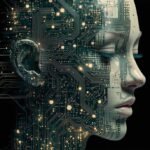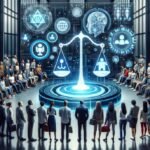AI in Smart Cities
Smart cities are advancing with SDAIA and Alibaba Cloud's collaboration. AI algorithms help optimize:
- Urban planning
- Traffic management
- Pollution control
These systems can predict needs and adapt quickly, improving city efficiency in real-time.
AI-powered surveillance enhances safety by identifying risks early, from traffic jams to security issues. This proactive approach keeps the public informed and prepared.
Quality of life improves as AI assists in:
- Managing healthcare resources
- Personalizing education
- Optimizing energy grids
In Saudi Arabia, Vision 2030 aims to create leading smart cities, with Riyadh at the forefront of this urban intelligence initiative.

AI in Waste Management
In China, Alibaba Cloud's AI is revolutionizing waste incineration. The technology automatically adjusts combustion settings for optimal efficiency, reducing emissions and maximizing energy output without constant human monitoring.
This AI-driven approach significantly improves the waste management process in a country dealing with large volumes of solid waste. It:
- Reduces the need for manual adjustments
- Smooths out operational variability
- Minimizes incinerator shutdowns
The impact is substantial:
"Artificial intelligence is a great assistant. It frees laborers from an overwhelming workload and helps stabilize production," said Wang Zonglin, general manager of a waste incinerator in southern China's Jiangxi province.
While challenges in waste sorting remain, AI in waste management represents a significant step towards more efficient and environmentally friendly practices.
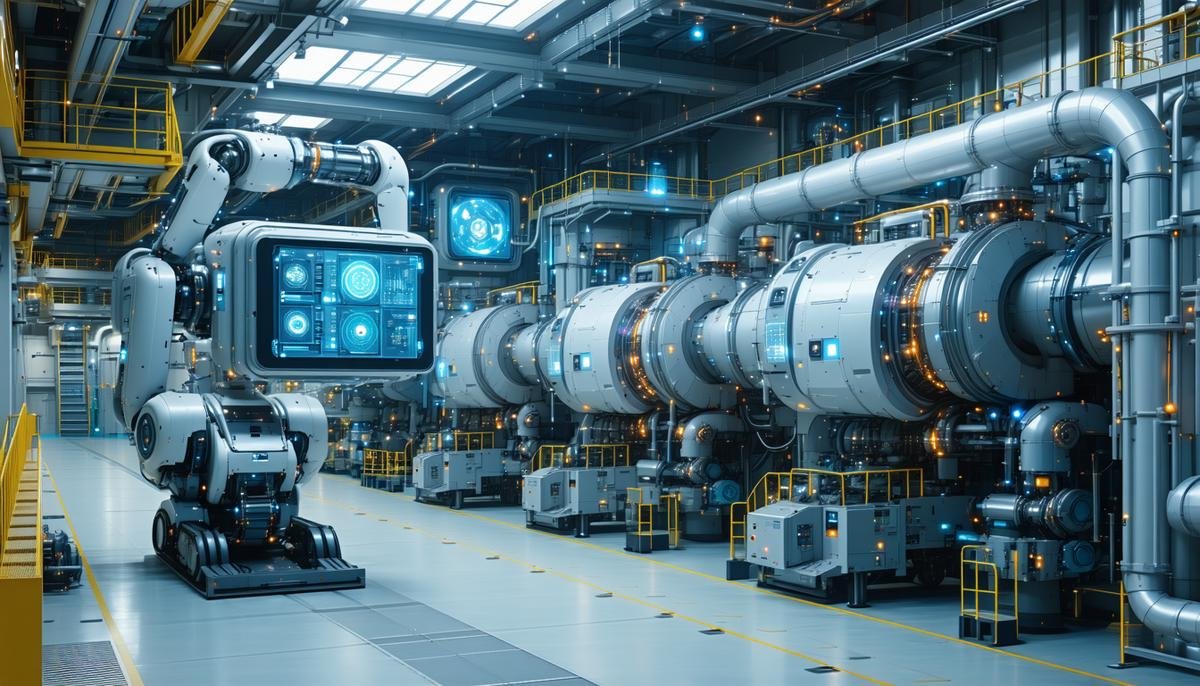
AI's Role in the Digital Economy
AI is transforming traditional industries in the digital economy. In agriculture, AI analyzes weather and soil data to optimize planting, watering, and harvesting, increasing yields and reducing waste.
Manufacturing has embraced smart factories where AI-powered robots:
- Analyze efficiency
- Predict maintenance needs
- Optimize production lines
This minimizes downtime and maximizes output.
In retail, AI analyzes customer data to provide personalized recommendations, enhancing the shopping experience and improving customer satisfaction.
Across sectors, AI is empowering businesses to compete more effectively in the digital marketplace, valuing speed, accuracy, and adaptability.
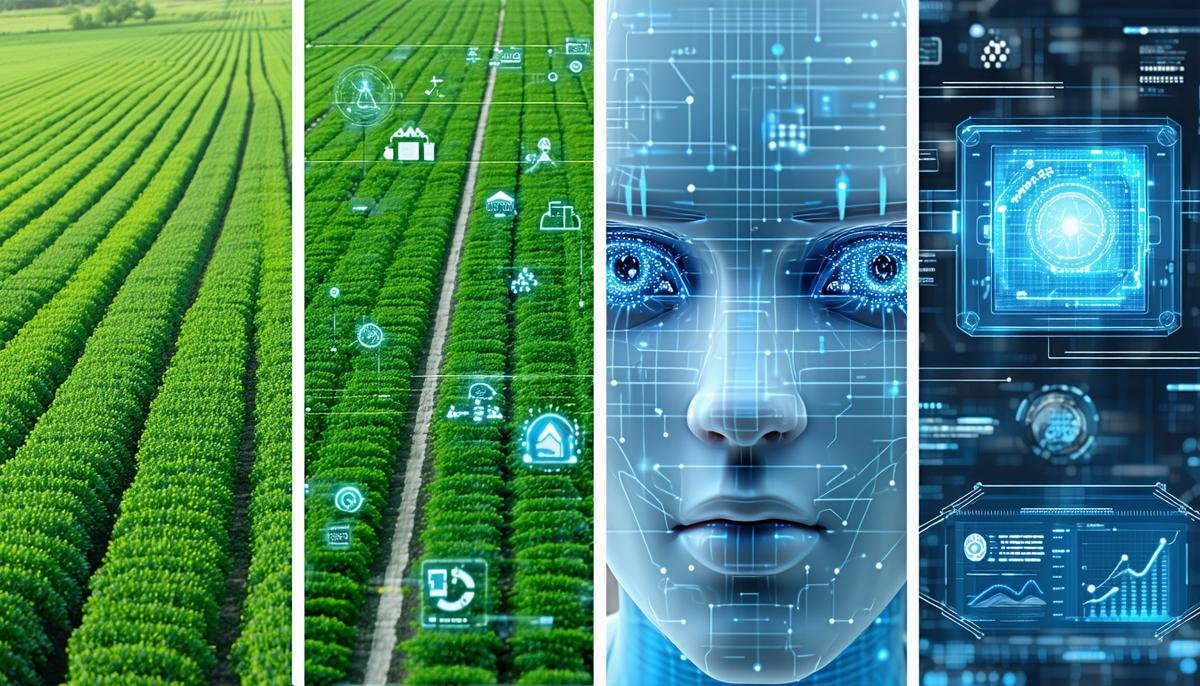
Industry-Specific Cloud Solutions
Major providers like Alibaba Cloud are offering industry-specific cloud solutions tailored to sectors such as healthcare, finance, and manufacturing. These solutions adhere to industry standards and compliance regulations.
| Industry | Cloud Solution Benefits |
|---|---|
| Healthcare | Secure digitization of patient records, HIPAA compliance |
| Finance | Secure, efficient transaction platforms meeting regulatory requirements |
| Manufacturing | Real-time metric tracking, optimization, compliance with international standards |
Companies adopting these industry-specific solutions are gaining a competitive edge, transforming into agile enterprises equipped for the digital landscape.

AI in Combating COVID-19
During the COVID-19 pandemic, AI has played a crucial role in various aspects of crisis management:
- Remote diagnostics powered by AI have enabled virtual patient assessments, reducing in-person visits.
- AI systems have assisted in crowd management by screening temperatures in public spaces.
- In genetic research, AI algorithms have accelerated the identification of new virus strains.
- AI has optimized supply chains for test kits and PPE distribution.
- Robots have been deployed in hospitals for tasks like sanitization and medication delivery, reducing human exposure.
This crisis has demonstrated AI's potential as an integral part of decision-making and care in future health emergencies.
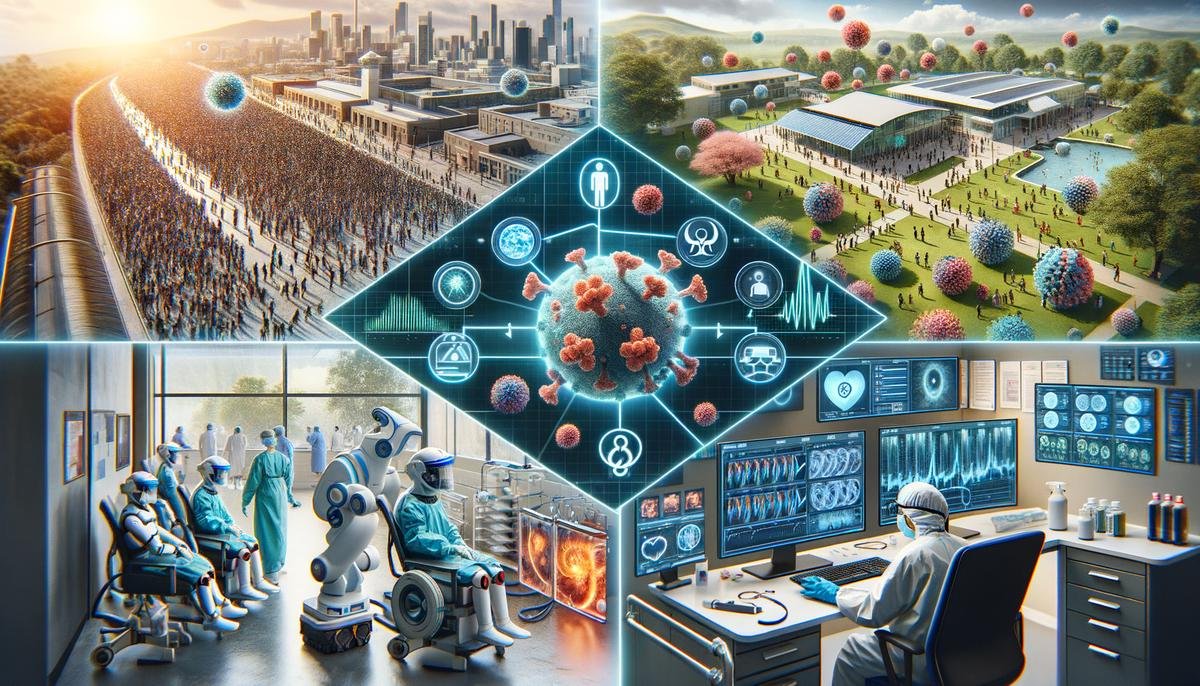
AI is reshaping how we interact with our environments, from smart cities to waste management, digital economies, and healthcare. It's about enhancing efficiency and adaptability in various sectors. As we move forward, AI stands as a pivotal force, ready to tackle future challenges with precision and innovation.
- Alghandi A. Saudi Data & AI Authority partners with Alibaba Cloud to drive smart city innovation. Saudi Press Agency. 2021.
- Wang Z. Automated waste incineration in China. Waste Management Today. 2022.
- World Economic Forum. The Future of Jobs Report 2020. Geneva: WEF; 2020.
- Accenture. Industry Cloud: Delivering on the Promise of Cloud Value. New York: Accenture; 2022.
- Thompson A. The rise of industry-specific cloud solutions. Cloud Computing Magazine. 2023.



